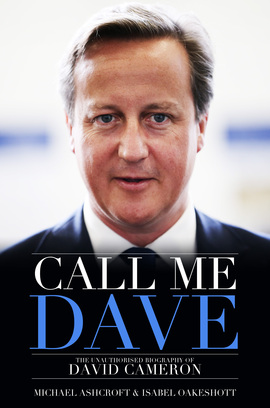Battle over free speech: Are trigger warnings, safe spaces and no-platforming harming young minds?
[vc_row][vc_column][vc_single_image image=”102958″ img_size=”full”][vc_column_text]Many would argue that these are the fundamental goals of a good education. So why has Cambridge University taken to warning its students that the sexual violence in Titus Andronicus might be traumatic for them? Why are other universities in America and increasingly in Britain introducing measures to protect students from speech and texts they might find harmful? Safe spaces, trigger warnings and no-platforming are now campus buzzwords – and they’re all designed to limit free speech and the exchange of ideas. As celebrated social psychologist Jonathan Haidt argues in his forthcoming book The Coddling of the American Mind, university students are increasingly retreating from ideas they fear may damage their mental health, and presenting themselves as fragile and in need of protection from any viewpoint that might make them feel unsafe.The culture of safety, as Haidt calls it, may be well intentioned, but it is hampering the development of young people and leaving them unprepared for adult life, with devastating consequences for them, for the companies that will soon hire them, and for society at large.
That, Haidt’s critics argue, is an infuriating misinterpretation of initiatives designed to help students. Far from wanting to shut down free speech and debate, what really concerns the advocates of these new measures is the equal right to speech in a public forum where the voices of the historically marginalised are given the same weight as those of more privileged groups. Warnings to students that what they’re about to read or hear might be disturbing are not an attempt to censor classic literature, but a call for consideration and sensitivity. Safe spaces aren’t cotton-wool wrapped echo chambers, but places where minority groups and people who have suffered trauma can share their experiences without fear of hostility.
On November 19th Haidt comes to the Intelligence Squared stage to discuss and debate these ideas. Joining him will be the former chief rabbi Jonathan Sacks, who believes that educating young people through debate and argument helps foster robustness; writer and radical activist Laurie Penny, who campaigns for the voices of less privileged groups to be heard; and sociologist Kehinde Andrews, one of the UK’s leading thinkers on race and the history of racism.[/vc_column_text][vc_custom_heading text=”Panelists” font_container=”tag:h3|text_align:left” use_theme_fonts=”yes”][vc_row_inner][vc_column_inner width=”1/4″][vc_single_image image=”102951″ img_size=”full”][/vc_column_inner][vc_column_inner width=”3/4″][vc_column_text]
Kehinde Andrews
Associate professor in sociology at Birmingham City University, a regular writer of opinion pieces for the Guardian, Independent and Ebony magazine, and editor of the series ‘Blackness in Britain’. He was part of the team that launched the first Black Studies degree in Europe, and is co-chair of the Black Studies Association and of the Harambee Organisation of Black Unity. He is author of Back to Black: Retelling Black Radicalism for the 21st Century.[/vc_column_text][/vc_column_inner][/vc_row_inner][vc_row_inner][vc_column_inner width=”1/4″][vc_single_image image=”102950″ img_size=”full”][/vc_column_inner][vc_column_inner width=”3/4″][vc_column_text]
Jonathan Haidt
Social and cultural psychologist, who is the Thomas Cooley Professor of Ethical Leadership at New York University’s Stern School of Business. His 2013 book, The Righteous Mind: Why Good People are Divided by Politics and Religion, was described by the New York Times as ‘a landmark contribution to humanity’s understanding of itself’. His latest book is The Coddling of the American Mind: How Good Intentions and Bad Ideas Are Setting Up a Generation for Failure.[/vc_column_text][/vc_column_inner][/vc_row_inner][vc_row_inner][vc_column_inner width=”1/4″][vc_single_image image=”102952″ img_size=”full”][/vc_column_inner][vc_column_inner width=”3/4″][vc_column_text]
Laurie Penny
Author and commentator, who has been described as ‘one of the most accomplished and acerbic of the new, young journalists emerging from the protest movements of the 2010s’. She is a contributing editor to The New Statesman and has also written for The Guardian, Time magazine, Buzzfeed, The New York Times and Vice. She has written five books including Bitch Doctrine: Essays for Dissenting Adults and Unspeakable Things: Sex, Lies and Revolution.[/vc_column_text][/vc_column_inner][/vc_row_inner][vc_row_inner][vc_column_inner width=”1/4″][vc_single_image image=”102954″ img_size=”full”][/vc_column_inner][vc_column_inner width=”3/4″][vc_column_text]
Rabbi Lord Sacks
Jonathan Sacks was Chief Rabbi of the United Hebrew Congregations of the Commonwealth between 1991 and 2013. He is a philosopher and author of over 30 books, most recently the bestselling Not in God’s Name: Confronting Religious Violence. He has a number of professorships at academic institutions, including New York University, Yeshiva University and King’s College London.[/vc_column_text][/vc_column_inner][/vc_row_inner][vc_custom_heading text=”Chair” font_container=”tag:h3|text_align:left” use_theme_fonts=”yes”][vc_row_inner][vc_column_inner width=”1/4″][vc_single_image image=”102953″ img_size=”full”][/vc_column_inner][vc_column_inner width=”3/4″][vc_column_text]
Emily Maitlis
Presenter of BBC Newsnight and one of the country’s best known broadcasters.[/vc_column_text][/vc_column_inner][/vc_row_inner][vc_custom_heading text=”In Partnership With” font_container=”tag:h4|text_align:left” use_theme_fonts=”yes”][vc_row_inner][vc_column_inner width=”1/3″][vc_single_image image=”102971″ img_size=”full” onclick=”custom_link” img_link_target=”_blank” link=”https://www.intelligencesquared.com/”][/vc_column_inner][vc_column_inner width=”1/3″][/vc_column_inner][vc_column_inner width=”1/3″][/vc_column_inner][/vc_row_inner][/vc_column][/vc_row][vc_row][vc_column][vc_column_text]
When: Monday, 19 November 2018, 7PM
Where: Emmanuel Centre 9-23 Marsham St Westminster SW1P 3DW
Tickets: From £15 via Intelligence Squared
[/vc_column_text][/vc_column][/vc_row]

